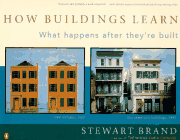
people finder
> company finder
 |
people finder |
| > notion finder
> company finder |
This page covers people who are currently active, or who were active in the past 100 years For earlier influences (including Chinese, Greek, Roman and Mediaeval thinkers), please go to the Historical Page. |
A |
Christopher Alexander - pioneer of design patterns and a novel approach to planning |
B |
Gregory Bateson -
master of paradox
Stafford Beer - mapper of viable systems Albert Borgmann - deep and unusual insights into technology Stewart Brand - change how you think about architecture and time |
D |
Jacques Derrida - master of deconstruction |
E |
Jon Elster
Milton Erikson - a hypnotherapist who has profoundly influenced change management |
F |
Michel Foucault - master of discourse |
H |
Larry Hirschhorn - change how you think about organizations and boundaries |
K |
Kevin Kelly - change how you think about systems and control |
L |
Jacques Lacan -
French psychoanalyst
Imre Lakatos - brilliant analysis of proofs and refutations Bruno Latour - places science and technology into their social context |
M |
Peter Marris -
good insights on social change
Humberto Maturana Lewis Mumford - one of the great writers on society and technology |
P |
Barry Palmer |
V |
Francisco Varela
Veryards Sir Geoffrey Vickers - a wise and reflective man of affairs who had a profound influence on systems thinking and practice |
W |
Karl Weick -
change how you think about organizations and change
Jerry Weinberg |
 |
Stewart Brandveryard projects > people > Stewart Brand |
Author of an outstanding book on architecture: How Buildings Learn,
from which we take the notion of Shearing
Layers.
 |
Stewart Brand, How Buildings Learn: What Happens After They’re Built. Viking 1994. In this detailed and well-illustrated book, Brand shows how buildings adapt to changing requirements over long periods. The book inspired a 6-part TV series by the BBC. (Comments critical of the architect Lord Rogers have been removed from the British edition. Despite this, Brand himself, in a comment on the Amazon.co.uk website, recommends the British edition.) |
 |
Milton Eriksonveryard projects > people > Milton Erikson |
On this website, we refer to his technique of prescribing the symptom and reframing, and his treatment of resistance.
The best account of his work is probably Uncommon Therapy by Jay Haley (an associate of Gregory Bateson).
 |
Kevin Kellyveryard projects > people > Kevin Kelly |
Has written some excellent books, which document and synthesize some
important social and technical developments.
| Books | Kevin Kelly. Out of Control: The New Biology of Machines,
Social Systems and the Economic World. UK edition is
published by Fourth Estate, London, 1994.
Out of Control is a wide-ranging and excellently researched compendium of large complex systems. Kelly has found interesting parallels between a variety of disciplines, from biology to computer science, and from mathematics to government. Kelly ends with what he calls The Nine Laws of God - nine principles which he claims to find in the design or growth of all large complex systems, both "natural" and "artificial". |
|
| Books | Kevin Kelly. New Rules for the New Economy: 10 ways the network
economy is changing everything. US edition Viking Penguin.
UK edition Fourth Estate, London. 1998.
A systematic analysis of the strategies for successful business in the new world. This is the open, distributed, connected, chaotic world he described in his previous book, Out of Control. New Rules for the New Economy is a much thinner volume than Out of Control. It explores some of the business paradoxes of the Internet, and turning the Nine Laws of God into a more practical set of rules-of-thumb for being successful in a networked world. Think of it as a pattern language for e-business. |
|
| Kevin Kelly's website | ||
 |
Peter Marrisveryard projects > people > Peter Marris |
His work on risk and uncertainty includes some good insights on Organizations
that Maintain a Double Boundary.
| Books | Peter Marris. The Politics of Uncertainty. Routledge
1996
Marris offers an analysis of socioeconomic risk, based on a combination of Marx and Bowlby. I was carried along by his moral indignation, but I remain unconvinced by his logical argument. Nonetheless, it provides a very interesting contrast to Larry Hirschhorn's book Reworking Authority. Chapter 7 is particularly recommended. Earlier books include Loss and Change, and Meaning and Action. There is also a novel. |
 |
Barry Palmerveryard projects > people > Barry Palmer |
 Barry
was an independent consultant and writer, with a special interest in the
application of systems thinking and psychology to problems of organisational
strategy, design and development. With Nano McCaughan, he wrote Systems
Thinking for Harassed Managers (Karnac Books, 1994). Some of his shorter
writings can be found on the Boxer Research
Limited website.
Barry
was an independent consultant and writer, with a special interest in the
application of systems thinking and psychology to problems of organisational
strategy, design and development. With Nano McCaughan, he wrote Systems
Thinking for Harassed Managers (Karnac Books, 1994). Some of his shorter
writings can be found on the Boxer Research
Limited website.
I shall remember Barry for his quiet but insistent intellectual honesty
and integrity, his tireless search for truth, his thoughtfulness, his evident
spirituality. He remains an inspiring example, and I shall miss him.
| Systems Thinking for Harassed Managers is a short and simple introduction to systems thinking, firmly embedded in the practice of management and consultancy. |   |
 |
veryard projects > people |
Last updated on November 15th, 2003
Copyright © 2003 Veryard Projects Ltd http://www.veryard.com/people/index.htm |